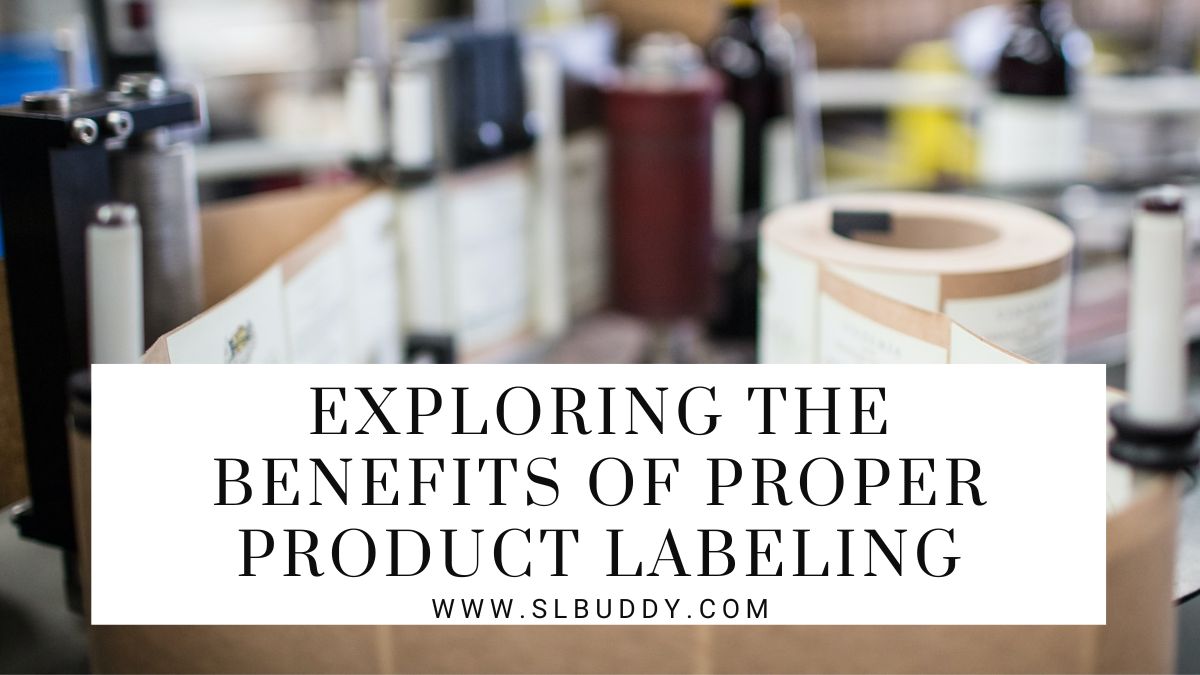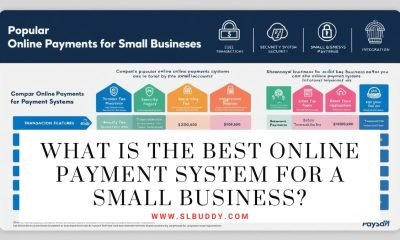
When it comes to product labeling, many manufacturers often overlook its significance.
However, proper product labeling can provide several advantages for both the manufacturer and the customer alike.
From helping increase brand visibility to ensuring compliance with government safety regulations, having appropriate labels can help businesses become more successful and customers be better informed when shopping.
In this blog post, we’ll explore why product labeling is so vital and how it impacts your company’s success as well as the consumer experience.
Regulatory Compliance
Regulatory compliance is a critical aspect of product labeling often underestimated by many manufacturers.
Each industry has its own set of legal requirements for what information should be included on labels.
For instance, food products need to disclose nutritional information, allergens, and use-by dates. Having the right labeling equipment at your business can help you ensure that your products meet the necessary legal requirements and avoid potential fines.
Additionally, proper labeling can also save time and money in case of a recall as well as protect customers from any health risks associated with using unsafe products.
Accurate Information: Ensuring Consumer Safety
Accurate information on product labels plays a pivotal role in safeguarding consumer safety. Misinformation or lack of necessary details can lead to severe consequences, particularly in sectors such as food, pharmaceutical, and cosmetics.
For example, a customer with specific allergies relies on the product label to avoid potential allergic reactions. Similarly, incorrect dosage information on a pharmaceutical label can lead to overdose risks.
Therefore, precision in product labeling is more than just a regulatory obligation; it is an ethical responsibility towards consumers.
By providing clear, accurate, and comprehensive information on product labels, manufacturers can enhance consumer trust and foster brand loyalty.
Branding and Recognition: Labels as a Marketing Tool
Product labels are not just a source of crucial information but also a powerful marketing tool that can significantly contribute to brand recognition and differentiation in the market.
A well-designed and informative label can catch the consumer’s eye, convey the brand message, and influence the purchasing decision.
Labels tell a story about the brand and its values, making a product stand out among the sea of competitors.
High-quality images, colors, and typography used in labels can reflect the quality of the product, thus appealing to the target customer’s preferences and lifestyle.
In essence, product labels are the visual communicator of a brand, creating a lasting impression in the consumer’s mind and cultivating a sense of loyalty towards the brand.
By investing in proper product labeling, businesses not only comply with regulations but also gain a competitive edge, increase market share, and enhance customer retention.
Differentiating Products: Conveying Unique Selling Points
Exceptional product labeling can be a strategic medium to convey your product’s unique selling points (USPs) to potential customers.
Through thoughtful design and concise messaging, labels can highlight the distinctive features or benefits that set your product apart from the competition.
Displaying this information prominently on the label can stimulate consumers’ curiosity and persuade them to choose your product over rivals, whether it be due to a rare ingredient, sustainable sourcing, an inventive manufacturing process, or any other special feature.
Moreover, USPs can also cater to the specific needs or values of your target audience.
For instance, if your product is vegan, gluten-free, or organic, showcasing this information on the label could attract health-conscious customers or those with specific dietary needs.
Similarly, featuring a ‘Cruelty-Free’ or ‘Fair-Trade’ badge can appeal to those who prioritize ethical consumption.
Educational Value: Informing Consumers about Usage
Product labels also serve an educational purpose by instructing consumers on the correct usage of a product.
This is particularly important for products that may be potentially hazardous if used improperly, such as cleaning supplies, electronics, and certain beauty products.
Detailed instructions about the product’s use, care, and precautions can help prevent misuse and any ensuing accidents.
In addition, product labels can also educate consumers about the optimal storage conditions for a product, ensuring it maintains its quality over time.
For instance, labels on food products often provide storage guidelines to help maintain freshness and prevent spoilage, while electronic products usually come with labels specifying the ideal temperature and humidity conditions to enhance their lifespan.
By offering clear instructions and critical information about the product, labeling helps consumers extract maximum value from their purchase.
It empowers consumers with the knowledge they need to use, store, and care for their product effectively and safely, thereby enriching the overall user experience.
Ingredients and Allergen Disclosure: Catering to Diverse Needs
In an era where food allergies and dietary preferences are significantly prevalent, ingredient and allergen disclosure on product labels is more important than ever.
A clear and comprehensive listing of ingredients not only adheres to regulatory standards but also caters to the diverse needs of consumers.
For example, individuals with food allergies or intolerances, such as lactose intolerance or Celiac disease, rely heavily on accurate ingredient lists and allergen disclosures to make safe food choices.
Similarly, people following specific diets like veganism or kosher diets need to know whether a product aligns with their dietary restrictions.
Disclosing allergens and ingredients on the labels not only helps these consumers make informed decisions but also enhances their trust in the brand.
Furthermore, transparency in labeling can demonstrate a business’s commitment to consumer welfare, strengthening its reputation in the market.
Thus, by catering to diverse consumer needs through comprehensive ingredient and allergen disclosure, businesses can foster customer loyalty and stay ahead in the competitive landscape.
Sustainability Messaging: Sharing Environmental Commitment
In today’s environmentally-conscious market, sustainability messaging on product labels is becoming increasingly significant.
By highlighting eco-friendly practices such as the use of renewable resources, recycled packaging, or low carbon footprint, brands can demonstrate their commitment to environmental stewardship.
This kind of messaging resonates deeply with consumers who prioritize sustainability in their purchasing decisions.
Moreover, certifications such as “Organic”, “Rainforest Alliance Certified”, or “Fair Trade” further substantiate the brand’s claims and lend credibility.
It’s important to remember though, that these claims should be genuine and verifiable to avoid ‘greenwashing’.
After all, sustainability is not just about making claims, but about embodying those values in all aspects of business.
By integrating sustainability into their packaging and labeling, businesses can not only appeal to the environmentally-conscious consumer but also contribute meaningfully towards a more sustainable future.
Don’t miss: Make Sure Your Company Is Doing Its Best By Investing In These Technologies
The bottom line
Product labeling is an essential marketing tool that can differentiate products, inform customers, and convey the brand’s values.
By investing in proper labeling and staying abreast with regulatory standards, businesses can create a powerful visual impression on their target audience while maintaining compliance.
Furthermore, labels can be tailored to meet the needs of specific segments such as health-conscious consumers or those following special diets.
Additionally, labels can serve as a medium to communicate the brand’s environmental commitment and stand out in an increasingly competitive market.
Hence, it is clear that exceptional product labeling has the potential to influence consumer behavior and build brand trust.
By leveraging this powerful tool wisely, businesses can reap immense benefits from their label design investments.










